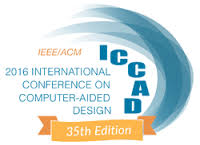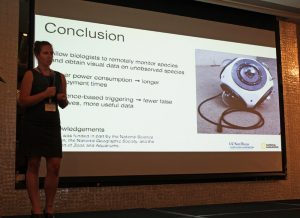 It would seem like one would want a “precise” solution to security, but our recently published work shows that this isn’t always the best. In particular, by reducing the complexity of the security model, you can allow the formal solvers to finish more quickly, and in many cases give you an answer where previously you wouldn’t get one at all. The latter case happens often — the tools never fail to give an answer because you are asking them too difficult a question; they can spend days or even weeks and still not be able to determine a result. Our recent publication at the International Conference On Computer Aided Design (ICCAD) demonstrates some techniques to take advantage of this complexity vs. precision tradeoff in order to analyze hardware design for security flaws. This work was co-authored with collaborators from EPFL (Andrew Becker and Paolo Ienne), and NPU (Dejun Mu), in addition to Kastner Research Group members, Wei, Armita, and Ryan.
It would seem like one would want a “precise” solution to security, but our recently published work shows that this isn’t always the best. In particular, by reducing the complexity of the security model, you can allow the formal solvers to finish more quickly, and in many cases give you an answer where previously you wouldn’t get one at all. The latter case happens often — the tools never fail to give an answer because you are asking them too difficult a question; they can spend days or even weeks and still not be able to determine a result. Our recent publication at the International Conference On Computer Aided Design (ICCAD) demonstrates some techniques to take advantage of this complexity vs. precision tradeoff in order to analyze hardware design for security flaws. This work was co-authored with collaborators from EPFL (Andrew Becker and Paolo Ienne), and NPU (Dejun Mu), in addition to Kastner Research Group members, Wei, Armita, and Ryan.
Monthly Archives: November 2016
Best Paper Nomination at WUWNet ’16
 Antonella traveled to Shanghai to present our paper “Autonomous Acoustic Trigger for Distributed Underwater Monitoring Systems” at WUWNet ’16: The 11th ACM International Conference on Underwater Networks and Systems. The paper, authored by Antonella, Ryan, and visiting undergraduates Ethan Slattery (University of California, Santa Cruz) and Andrew Hostler (California Polytechnic San Luis Obispo) earned 1st runner up for the Best Paper Award. The paper described the development of an autonomous underwater camera system for marine population monitoring, which has been used to autonomously monitor the vaquita porpoise in Mexico, and will be used in the coming months to study the Nassau grouper in the Cayman Islands and the kelp forest soundscape in San Diego.
Antonella traveled to Shanghai to present our paper “Autonomous Acoustic Trigger for Distributed Underwater Monitoring Systems” at WUWNet ’16: The 11th ACM International Conference on Underwater Networks and Systems. The paper, authored by Antonella, Ryan, and visiting undergraduates Ethan Slattery (University of California, Santa Cruz) and Andrew Hostler (California Polytechnic San Luis Obispo) earned 1st runner up for the Best Paper Award. The paper described the development of an autonomous underwater camera system for marine population monitoring, which has been used to autonomously monitor the vaquita porpoise in Mexico, and will be used in the coming months to study the Nassau grouper in the Cayman Islands and the kelp forest soundscape in San Diego.
Paper: “Autonomous Acoustic Trigger for Distributed Underwater Visual Monitoring Systems“